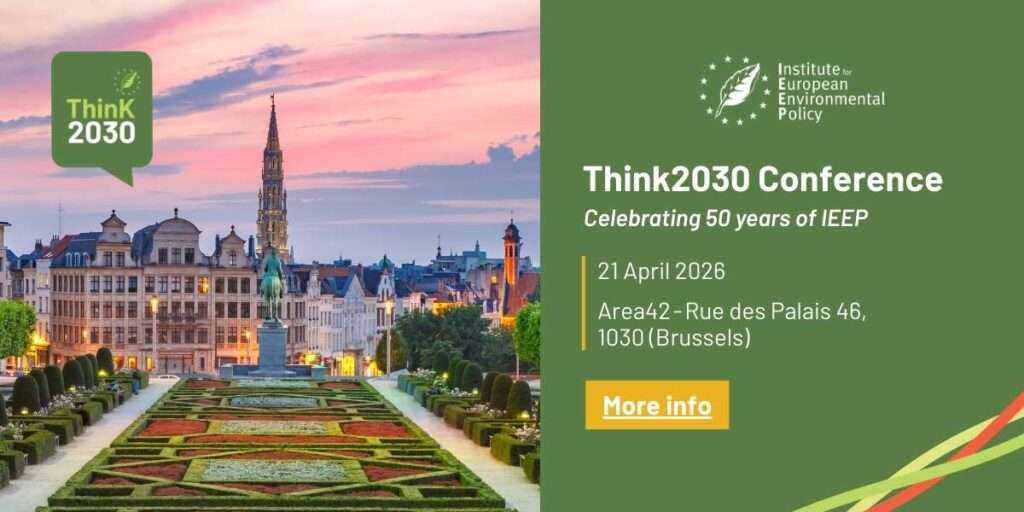Author: Clara Behr
Globally, around 12.7 million tonnes of mismanaged plastic waste enter the ocean every year (Jambeck et al., 2015). This is equivalent to each citizen of the world dumping almost 2 kg of plastic in the ocean annually. Plastics and marine litter are one of the biggest environmental challenges of today. They are not only an eyesore, but represent major risks to human health and biodiversity, as well as to many sectors of the economy. So far global leadership and action on this issue has been lacking, but this is changing.
The issue is rising on the global agenda as the G20 adopted two declarations – the G20 Marine Litter Action Plan and the G20 Resource Efficiency Dialogue. This was inspired in part by the T20 initiatives which brought together think tanks and research institutes from across the world.
At T20, IEEP hosted a global Task Force on the Circular Economy, and led a Policy Paper on Circular economy measures to keep plastics and their value in the economy, avoid waste and reduce marine litter. IEEP also contributed to a Policy Brief on Sustainable Ocean Economy, Innovation and Growth stressing the problem of marine litter and marine debris as a threat to ocean ecosystems. The G20 Marine Litter Action Plan reflects many of the recommendations made.
One of the central G20 recommendations is to improve waste management to reduce plastics pollution, especially for plastic waste leakage. Ineffective solid waste management, wastewater treatment and storm water systems are key sources of land-based marine litter. The recommendations aim to promote clean-up activities in a planned and consistent manner supporting removal and remediation actions, particularly in tourist areas and ports where plastic pollution can be pervasive. However, clean-up actions are not sufficient as they only address plastics on the ocean surface, but in the absence of sufficient upstream preventative measures, they are often essential downstream actions to clean up the environment and promote waste prevention by raising citizen awareness (Watkins et al 2015).
The G20 Marine Litter Action Plan states the G20 will place effective measures to make producers responsible for their products. They will do this by facilitating a polluter pays approach, via extended producer responsibility (EPR). EPR systems promote takeback, reuse and recycling and can contribute to reducing marine litter. IEEP is conducting a study on “EPR in the EU Plastics Strategy and Circular Economy” which aims to encourage ambitious EPR for plastic waste and support the transition towards a circular economy in Europe.
G20 recommendations build on initiatives launched by vanguard countries across the world. Examples include a microbeads ban in the United States through the Microbead-Free Waters Act of 2015, policies on single-use plastics in France where single-use plastic bags are banned since 2016 and Ireland which introduced a plastic bag levy in 2002. Other European examples include a plastic bag and bottle deposit refund schemes in Germany which introduced a mandatory one-way deposit system in 2003 and Swedenwhere a deposit system has existed since 1984, but only for beers and soft drink containers. A number of countries are enacting partial or complete disposable plastic bags bans with the most recent being Kenya (https://en.wikipedia.org/wiki/Phase-out_of_lightweight_plastic_bags).
The momentum from the G20 recommendations is welcomed, but will not be enough to solve the problem in the upcoming years. This is why the G20 countries must set an example by taking bolder steps to transition to a circular economy that avoids waste and reduces marine litter at a much larger scale. Costs of failing to act are much higher than the costs of action, and the option to postpone action is gone.

